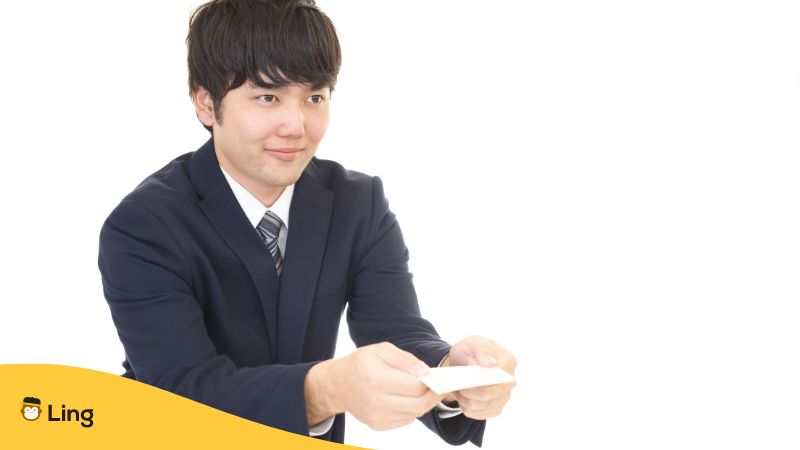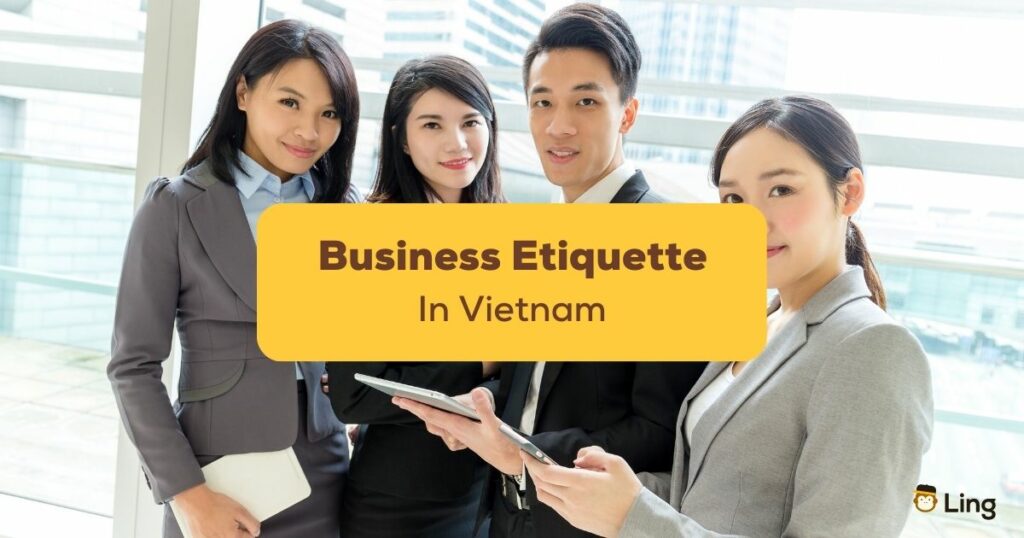So, you’re looking to dip your toes into the vibrant world of Vietnamese business, huh? Well, you’ve landed in the right place. With its booming market economy and unique blend of cultural influences, Vietnam is an exciting destination for many international professionals. But before you dive in, getting a handle on business etiquette in Vietnam is crucial.
In this essential guide, we’ll walk you through the ins and outs of business etiquette in Vietnam. Whether you’re doing business in Ho Chi Minh City or Hanoi, our friendly tips and advice will help you navigate the Vietnamese business environment like a pro in no time. So, let’s get started—your journey to language success in Vietnam begins here!
Greetings And Introductions
Alright, let’s kick things off with the basics. When meeting your Vietnamese business partners, you’ll want to make a solid first impression. Here’s a quick rundown of the must-knows when it comes to greetings and introductions.
The Handshake: Keep It Simple
In Vietnam, the handshake is the go-to gesture for both hellos and goodbyes. Remember, a firm grip and a warm smile go a long way. Oh, and if you’re unsure about who to greet first, follow the age-old rule: senior person first!
Bow And Show Respect
If you want to show more respect, bow slightly when shaking hands. It’s a small gesture that speaks volumes about your manners. Trust us; your Vietnamese business partner will appreciate it.
Addressing People: Time To Get Formal
Here’s the deal: addressing people by their first name isn’t the norm in Vietnam. Instead, use their title followed by their last name. If you’re unsure, ask how they’d like to be addressed. Better safe than sorry!
Business Cards: A Cultural Exchange
Exchanging business cards is a big deal in Vietnam. When you’re handed one, take a moment to read it and show some genuine interest. Then, present your business card with the company logo using both hands. It’s a sign of respect, and it’ll set the right tone for your meeting.
Small Talk Matters
Before diving into business matters, engage in a bit of chit-chat. Family, food, and travel are all safe topics. Keep it light and friendly, and you’ll be off to a great start.

Communication Styles
Navigating the world of communication in Vietnam might feel like a dance, but we’re here to teach you the steps. Let’s explore the subtleties of Vietnamese communication styles and set you up for conversational success.
The Art Of Indirectness
Vietnamese folks tend to lean toward indirect communication. They’re all about harmony, so avoiding conflict is key. Keep this in mind, and try to read between the lines. Your diplomacy skills will definitely come in handy.
Nonverbal Communication
Sometimes, actions speak louder than words. Pay attention to nonverbal cues, like body language and facial expressions. These can give you valuable insights into what your business partners are thinking or feeling. Just be mindful of cultural differences – some gestures and expressions might have different meanings in Vietnam.
Politeness Is The Name Of The Game
When it comes to conversation, politeness goes a long way in Vietnam. Be mindful of your tone, and avoid being overly blunt or confrontational. You’ll create a better rapport and help maintain that all-important harmony.
Hierarchy Matters
Respect for the hierarchy is deeply rooted in Vietnamese business customs. Be aware of the pecking order, and make sure to address higher-ups with the appropriate level of deference. It’s a small detail that makes a big impact.
Patience Is A Virtue
Decision-making in Vietnam can be a slow and deliberate process. Don’t push or rush your business partners – that’s a surefire way to create tension. Instead, be patient and understanding. Trust us; it’ll pay off in the end.
Humor: Lighten The Mood
Injecting a bit of humor into conversations can work wonders for building rapport. Just be cautious with sarcasm and irony, as these can be easily misinterpreted. Stick to light-hearted jokes, and you’ll be golden.

Business Meetings
Ready to rock your business meetings in Vietnam? Awesome! Let’s make sure you’ve got the basics covered. This section will cover some must-know tips to make your meetings go smoothly. Let’s get started!
Scheduling And Punctuality
First things first: timing is key. When setting up a meeting, it’s best to avoid the Lunar New Year (also known as Tet) and other major holidays. People are usually busy with family during these times.
Now, about punctuality. Arriving on time is important, but don’t stress if you run a few minutes late. Traffic can be unpredictable in Vietnam! Just be sure to give your business partners a heads-up if you’re delayed.
Once everyone’s there, be prepared for some small talk. It’s a great way to break the ice and build rapport. Plus, it’s a chance to learn more about each other’s cultures. Win-win!
Dress Code And Appearance
When it comes to dressing for a business meeting in Vietnam, it’s all about looking sharp and professional. For men, that usually means business attire, like a suit with a tie. For women, opt for a conservative dress, blouse, and skirt or a suit.
Here’s a pro tip: avoid flashy colors and patterns. Stick to neutral tones like black, navy, or gray. And remember to polish your shoes!
Personal grooming matters too. A neat hairstyle, trimmed nails, and minimal accessories are the way to go. Remember, you want to make a great impression!
Building Relationships
When it comes to business in Vietnam, relationships are everything. In this section, we’ll dive into some key aspects of building strong connections with your Vietnamese partners. Let’s get started!
The Importance Of Trust
Trust is the foundation of any successful business relationship. In the Vietnamese society, people place a high value on personal connections. To gain trust, be genuine, show respect, and invest time in getting to know your partners. Remember, trust takes time to build, but it can be shattered in an instant.
Sharing A Meal
Nothing brings people together like sharing a meal. In Vietnam, business lunches and dinners are common. It’s a chance to bond and discuss important matters in a relaxed setting. Be prepared to sample local delicacies and participate in toasts. And remember, always use both hands when receiving a plate or offering a gift.
Gift-Giving
Speaking of gifts, they play a significant role in Vietnamese business culture. It’s customary to bring a small gift when visiting someone’s home or office. Choose something simple but meaningful, like a box of chocolates or a souvenir from your home country. Make sure to present the gift with both hands. But don’t be surprised if it’s not opened right away.

Navigating Language Barriers
Language can be a tricky terrain to navigate in international business. In this section, we’ll explore how to tackle language barriers when doing business in Vietnam. Let’s jump right in!
The Role Of English In Vietnamese Business
English is increasingly becoming a popular language for conducting business in Vietnam. Many professionals, especially those in urban areas, can speak and understand English to some extent. But don’t assume everyone is fluent. Being patient and understanding is essential when communicating with Vietnamese business people.
Learning The Basics
Even though English is widely spoken, learning a few basic Vietnamese phrases can go a long way. It shows your commitment to the partnership and respect for their business culture. Start with simple greetings, thank you, and numbers. You’ll be surprised at how much goodwill a little effort can generate.
To help you learn more about business etiquette in Vietnam, we’ve compiled a list of essential phrases that’ll come in handy during your interactions. Don’t worry if your pronunciation isn’t perfect – your efforts will be appreciated!
Greetings and Introductions
- Hello – Xin chào
- I am… – Tôi là… –
- Nice to meet you – Rất vui được gặp bạn
- Thank you – Cảm ơn
Setting Up Meetings and Appointments
- Can we meet on…? – Bạn có thể gặp tôi vào…?
- At what time? – Lúc mấy giờ?
- I will be on time – Tôi sẽ đến đúng giờ
Business Talk
- My company specializes in… – Công ty của tôi chuyên về…
- We are interested in… – Chúng tôi quan tâm đến…
- Can you help me with…? – Bạn có thể giúp tôi với…?
- Let’s collaborate – Chúng ta hợp tác
Handling Negotiations
- Can you give me a discount? – Bạn có thể giảm giá không?
- We would like to buy… – Chúng tôi muốn mua…
- We agree – Chúng tôi đồng ý
Wrapping Up
- See you later – Hẹn gặp lại
- Goodbye – Tạm biệt
- Good luck – Chúc may mắn
Seal The Deal With Confidence
As you can see, mastering the nuances of business etiquette in Vietnam isn’t rocket science. But it’s the little things that make a big difference in building relationships and achieving success. Keep in mind the importance of respect, hierarchy, and a warm smile when doing business in this vibrant country.
By showing cultural awareness and practicing these essential language tips, you’ll be well on your way to impressing your Vietnamese and sealing the deal confidently. So go ahead, dive into the dynamic world of business etiquette in Vietnam, and make your mark!
Learn Vietnamese With Ling
Discover the joy of language learning with the Ling app, your ultimate language companion! Designed with you in mind, the Ling app offers fun and interactive lessons, customizable to match your pace and learning style. Whether you’re a beginner or an advanced learner, you’ll speak like a local in no time!
Say goodbye to boring textbooks and hello to an immersive experience that will make you fall in love with languages. Download the Ling app on the AppStore or PlayStore today and embark on an incredible linguistic adventure!



































































